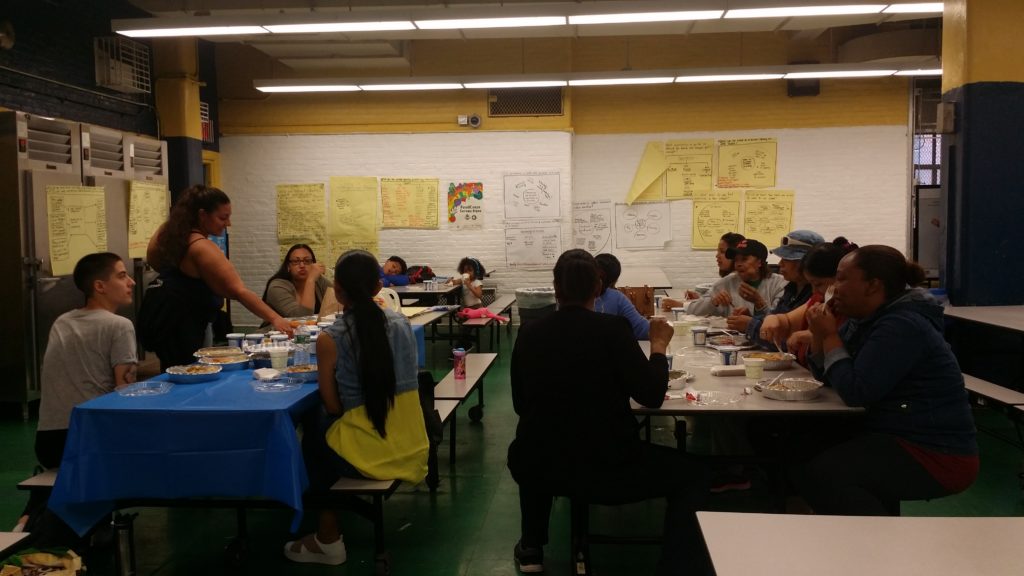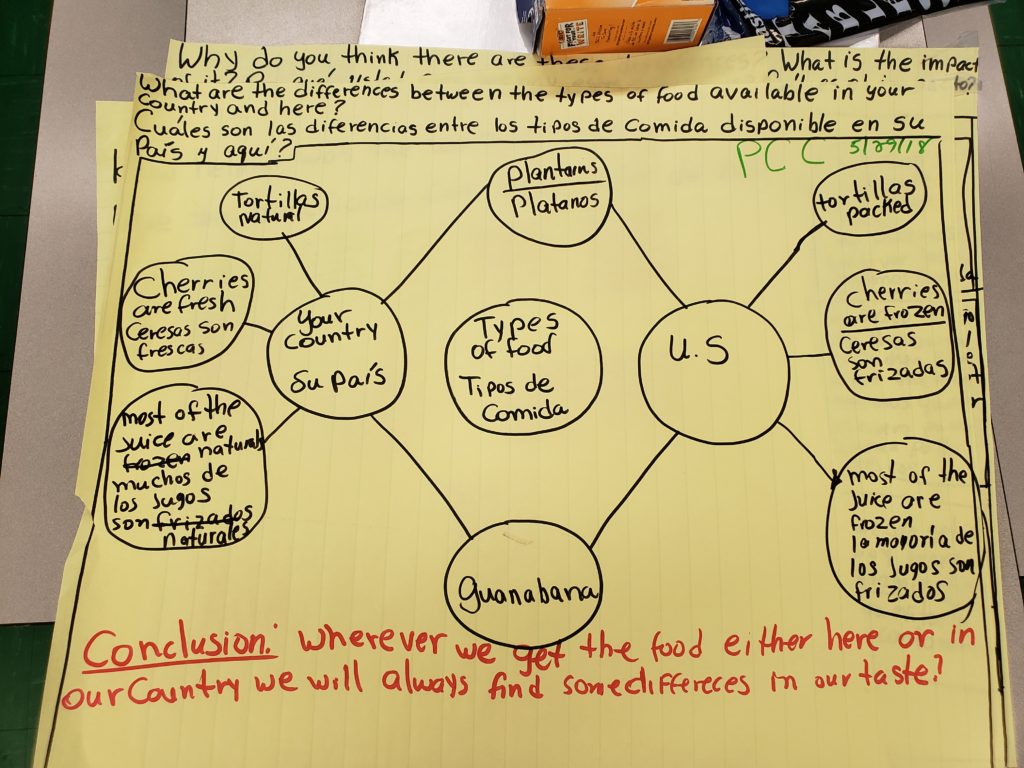In May and June, FoodCorps member July and Community Engagement Specialist Jenina co-facilitated a workshop they developed together called Reclaiming Traditional Diets at PS 294’s Parent Cooking Club, which July facilitates every month, and at the Department of Education’s District 9 Student and Parent Leadership Summit.

Parents sharing a meal after the workshop at PS 294 Parent Cooking Club.
Parents engaged in a discussion comparing and contrasting the foods available in the countries where they were born, versus in the United States. They then reflected on the causes for those differences and the impacts on families. Many parents shared that in their home countries the food was fresher, less processed, and more flavorful. On the contrary, here in the Bronx the fast, hardworking lifestyle combined with the abundance of fast food and junk food has had a negative impact on their families’ health. Parents also shared that they fear their children will become disconnected from their culinary traditions. Jenina shared additional information about how the food system in the United States is rigged to benefit huge food corporations, so that processed, unhealthy food is actually cheaper and healthy food is more expensive. This is counter-intuitive, and is not the case in many other countries.

July recorded the parents’ input using Thinking Maps, a tool that many New York City schools are using to help organize ideas and draw conclusions.
At the end of each workshop, we shared the following action steps to eat more like our ancestors did, even in the modern-day Bronx:
- Buy fresh, good quality, and unprocessed foods whenever possible. Eat less meat and more vegetables. Visit the 170 Farm Stand!
- Prepare food at home using whole ingredients, and eat together. Involve your children in preparing food at home, and pass on the values of eating this way.
- If there is a traditional, cultural, or healthy food item that you can’t find at your grocery store, request it! Store owners will sometimes start stocking an item if they know people will buy it.
We enjoyed sharing about these experiences with parents. We are happy to be engaged in the work of resisting a food system that values profits over people, and instead elevating traditional ways of eating that are more connected to the earth, better for us, and carry the strength of our ancestors’ resilience.